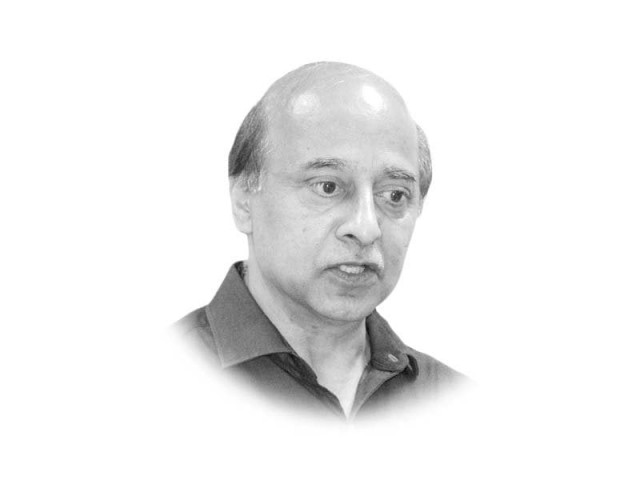What democracy?
Those coming into power on the back of poor peoples’ votes appear to loathe democratic conduct

The writer heads the independent Centre for Research and Security Studies, Islamabad and is author of Pakistan: Pivot of Hizbut Tahrir’s Global Caliphate
Political democracy requires financial democracy too i.e., equitable and accountable distribution and management of national resources. Is the epicentre of democracy i.e., the federal government ensuring this? Article 160, for instance, requires the federation to convene a meeting of the National Finance Commission (NFC) every year, ideally before the annual budget to award the designs of financial formulae of economic distribution to provincial and federal governments for five consecutive years. Although instituted in 1951, the NFC has thus far been awarded only seven times, including the 2009 award. This displays little regard for democratic inclusive federal governance, and clearly betrays the high-handed and insensitive attitude of the centre, particularly in the current context when we look at the conflict-battered provinces of Khyber-Pakhtunkhwa and Balochistan. A case in point was the logjam that accrued from the federal government's arbitrary decisions on and preference for the eastern route over the crucial western route for the CPEC. The federation did some damage control only after noises were made by the provinces concerned that had threatened to upset the entire planning.
Another democratic forum for maintaining balance among the four federating units is the Council of Common Interests (CCI). Under sub-clause 3 of Article 153, the CCI is required to meet at least once in three months. But the government has not convened the CCI for over a year now. During the 37 years of its existence since its inception in 1973 to 2013, it met only 13 times. In the absence of any proper secretariat of the CCI, it is difficult to find any well-documented institutional memory. It makes sense for military dictators to bypass such forums but what justification do pontificating democrats have for not convening the CCI? Democracy draws its strength from an indiscriminate rule of law but does that figure on the priority list of reforms? True, the government continues to boast about the success of Operation Zarb-e-Azb — a ruthless projection of hard power. But where is the reform of the current obsolete justice system? The National Action Plan promised this in December 2015 but the interior minister ordered Nacta to work on reforms only on May 26 this year. How can the reform of the justice system and the police happen if the interior minister acts like a control freak? How can the police, still acting as a tool for maintaining law and order, become effective without a professional and accountable service structure?
If democrats lack the understanding or the willingness to reform the 1860-61 police and justice system, this only betrays their self-interest. Do they expect the military establishment to initiate justice system reforms? By the way, in the case of the Anti-Terror Act and Anti-Terror Financing, the military had to push the civilians into making constitutional amendments because the latter never appeared ready for reform. Democracy requires the government to count its heads for better planning. But the governmeny continues to delay the crucial census. Democracy requires integrity. But isn’t this missing altogether when ruling families own businesses and at the same time occupy seats in parliament and in the government?
In a recent article, former US ambassador William Milam wonders as to whether: a) elected politicians will break their chain of dependency on religious parties; b) will politicians change the patrimonial character of their parties to make them democratic; and c) whether political parties have grasped the nettle of structural economic reform to make Pakistan competitive in a globalised economy? Reforms can strengthen the state, increase the legitimacy of civilian governments and hence decrease the leverage of the military. Why is a democratic government missing this point, Milam rightly asks.
Published in The Express Tribune, June 8th, 2016.
Like Opinion & Editorial on Facebook, follow @ETOpEd on Twitter to receive all updates on all our daily pieces.













COMMENTS
Comments are moderated and generally will be posted if they are on-topic and not abusive.
For more information, please see our Comments FAQ